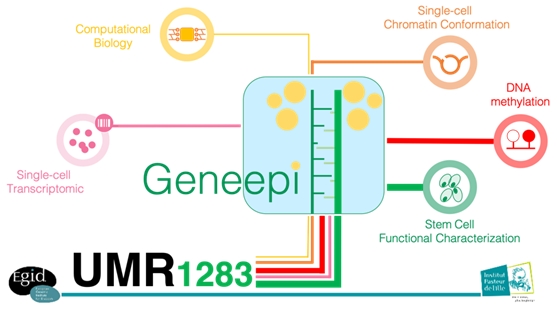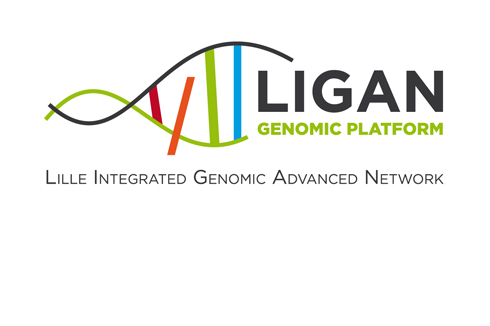Research scientists and clinicians involved : Fabien Delahaye, Philippe Froguel, Toby Andrew and Anne Vambergue
Our team also aims to understand the effect of early stress (e.g. overnutrition, high glucose exposure) on the epigenetic response of hematopoietic stem cells and associated functional changes, especially in regard to cell fate decisions, and the implication in metabolic and age-related diseases susceptibility, such as obesity or diabetes. We aim to better describe the relationship between genotype and phenotype using relevant clinical models and innovative integrative approaches at the cellular level. We want to promote a new model where environmental programming is not solely due to the modification of the cell-specific regulatory landscape (cellular reprogramming) per se but rely on a reorganization at the tissue level (cell subpopulation distribution). To challenge our model, we focus on 2 mains axis: 1) generating and integrating -omics data at the cellular level using single-cell technologies and novel computational approaches; and, 2) developing in vitro assays to assess the effect of early stress in stemness and lineage decision. With our approach, we aim to uncover key early and common mechanisms involve in disease onset and development in these at risk populations.
Related major publications of the team since 2015 :
– Delahaye F et al. Sexual dimorphism in epigenomic responses of stem cells to extreme fetal growth. Nature Communications10;5:5187. doi: 10.1038/ncomms6187, 2014.
– Delahaye F et al. The influence of genetic variants on the placental regulatory landscape. PLoS Genet. 2018 Nov 19;14(11):e1007785. doi: 10.1371/journal.pgen.1007785.
– Wijetunga NA & Delahaye F et al. The meta-epigenomic structure of purified human stem cell populations is defined at cis-regulatory sequences. Nature Communications 5:5195. doi: 10.1038/ncomms6195 , 2014.




